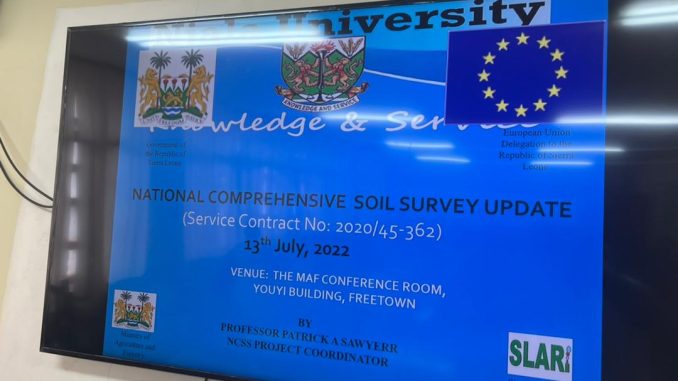
Wednesday 13th July, in the main Conference Room of the Ministry of Agriculture a team of researchers from Njala University and Sierra Leone Agricultural Research Institute (SLARi) presented a progress report on the ongoing National Comprehensive Soil Survey to the Ministry of Agriculture funded by the EU through the BAFS project.
A team of soil researchers were contracted from Njala University and Sierra Leone Agricultural Research Institute (SLARi) to undertake a National Comprehensive Soil Survey exercise as part of EU’s support to the Agricultural Sector in Sierra Leone. The research aims at bringing out the characterisation of agro climatic regions, agro ecological zones, land use, soil fertility and determination of land sustainability for cropping in Sierra Leone.
It has been discovered that there are gaps in information on the properties of the soils and related natural resources in the Sierra Leone since 1979 when the last comprehensive national reconnaissance survey on agro-climatic regions, agro-ecological zones, vegetation, land use and soils survey was conducted by the UNDP/FAO they must have been changing over the past 40 years.
In light of these issues, the Ministry of Agriculture saw the urgent need for an updated and comprehensive National Soil Survey for Sierra Leone to help guide sustainable soil management by small-scale farmers including the management of soil acidity and soil fertility in general.
The survey is also aimed at generating information for the judicious utilization and management of the soil resources for sustainable crop production in Sierra Leone. This research survey also gears towards updating maps of the agro-climatic/vegetation regions and rice agro ecological zones, identify, characterised and map major soil types at semi detailed level and determine land suitability for major crops, identify, also characterised and map major soil types in the lowland rice growing agro-ecologies at the detailed level, develop the capacity of staff at the ministry of Agriculture and eventually put together a framework for a national strategy on soil management.
According to the EU and Government of Sierra Leone, the expected impact is to contribute to food security improvement, poverty reduction and minimization of environmental degradation in the country.
Making his keynote statement, the Minister of Agriculture Dr. Abubakarr Karim said the issue of soil data is very paramount to the ministry. He said no matter the amount of seeds the ministry give out to farmers, if they don’t have knowledge or information about the soil they sow those seeds on, it’s always going to be a waste of energy, time and resources.
Expressing his excitement about the Survey, Dr. Karim thanked the EU for providing the funds and the National Authorising Office (NAO) for supervising and authorising the survey process. He ended up by urging the researchers to speed up the completion of the soil research and produce a soil data that is fit for purpose.
NAO Director Ambrose James said the research is going mark as another milestone in the history of agriculture in Sierra Leone. He said over 40 years since the last soil survey was carried out there have been a lot of guess work by farmers and the Ministry of Agriculture over the years that has contributed to low agricultural production.
Ambrose James said farmers can only produce well or have good yields when they know where and when to farm. He went further to state that the final research report will not only benefit the ministry but all farmers in the country. He ended up by saying the NAO is making sure that the deliverables set out for this research are met.
The Chief Agriculture Officer at the Ministry of Agriculture Dr. Sheriff said he is very happy that Sierra Leone is finally going to have up to date data on soil. He said due to the lack of updated National Comprehensive Soil Survey, Sierra Leone has been scoring very low in agriculture census and rated low in soil survey internationally. He went further to state that with this survey the country will have a data that will guide the government agricultural policies and analyses.
Dr. Sheriff said most times they are using proxy indicators with no research data to do their food economic zones. He said food economic zones should be aligned with soil survey result.
Presenting the progress report on the National Comprehensive Soil Survey on behalf of the research team, Prof. Patrick Sawyer said the research is another opportunity given to them as agricultural researchers to see and learn a lot about the beauty of the different soils and their components in Sierra Leone. He said when the report will be final out, it will definite make a huge change in the agriculture sector in the country.
Director of Agric-Engineering Division at the Ministry of Agriculture Dr. Abdulrahman Kamara said the survey report will serve as a roadmap in terms of guiding the ministry on what to do and where to farm to provide sufficient food for the people of Sierra Leone
Other speakers including the Senior Permanent Secretary at the Ministry of Agriculture Andrew Sorie, Deputy Minister MoA Dr. Theresa Tenneh Dick, Imprest Administrator BAFS Isaac Bangura.
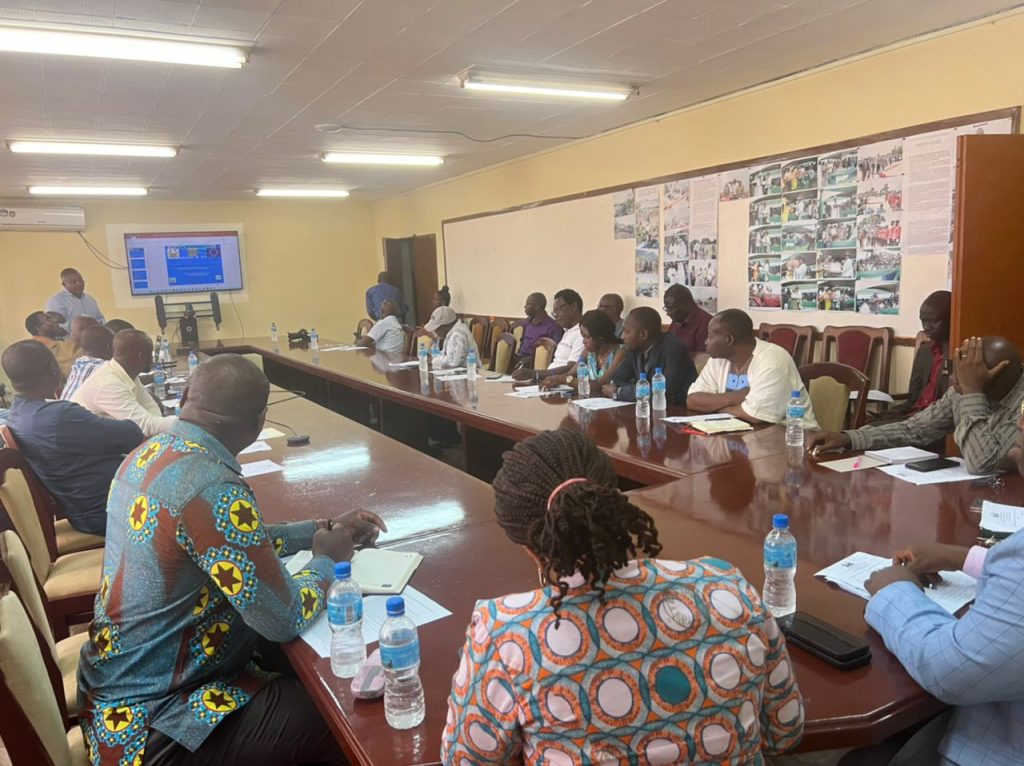
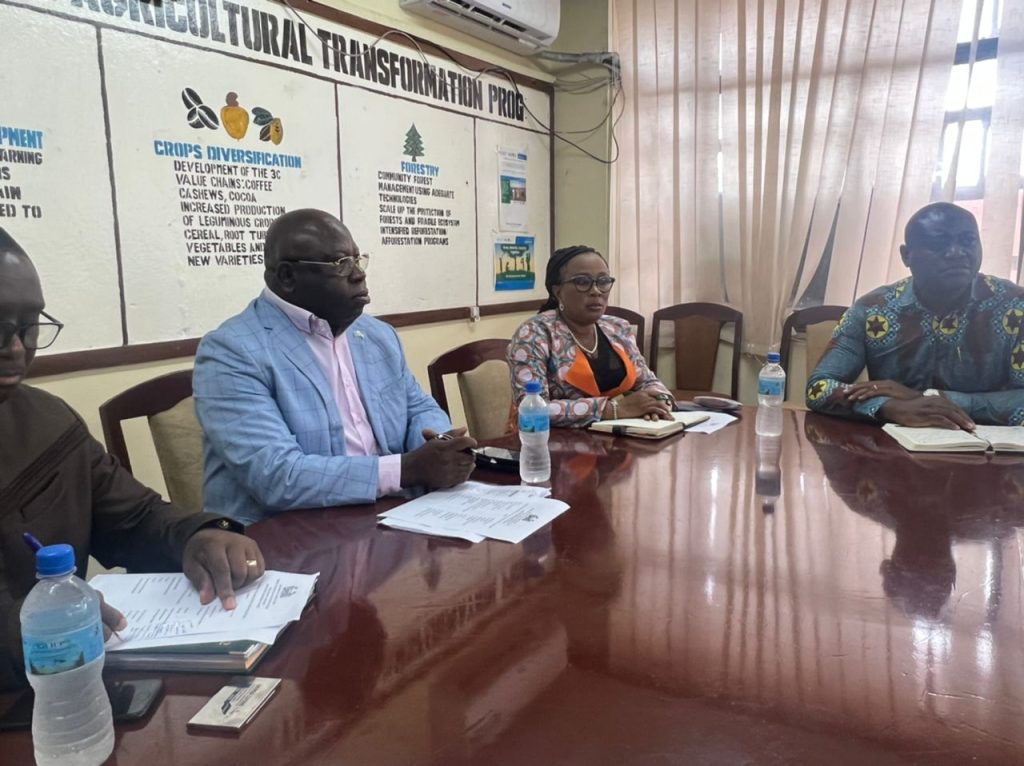
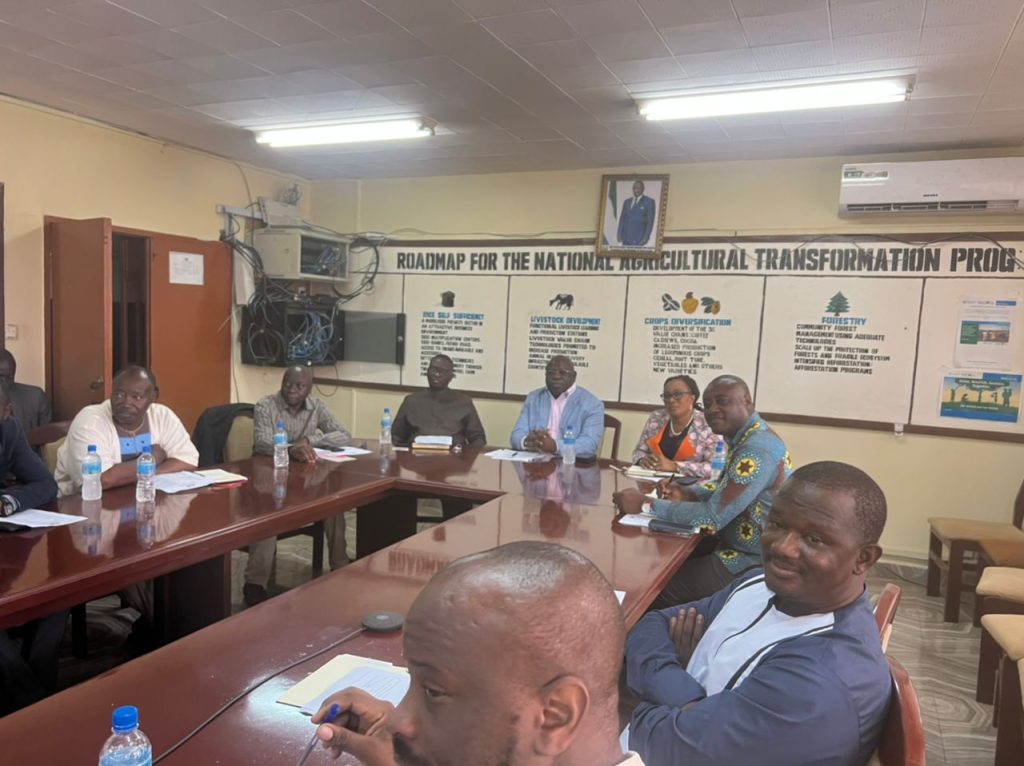
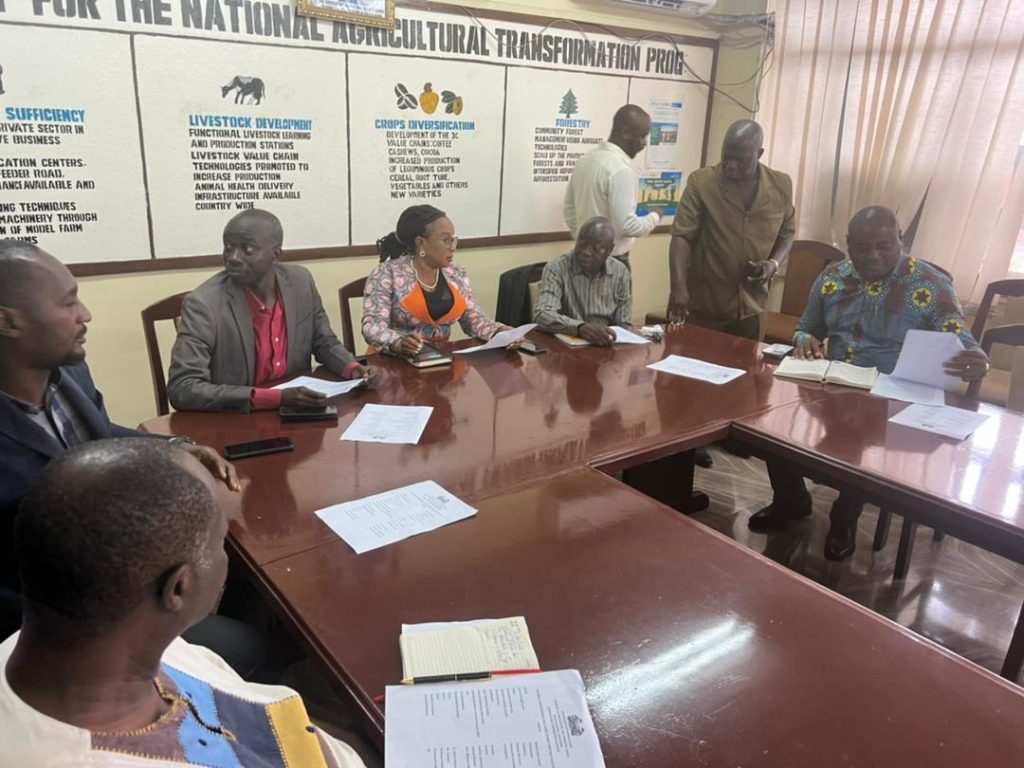

Leave a Reply